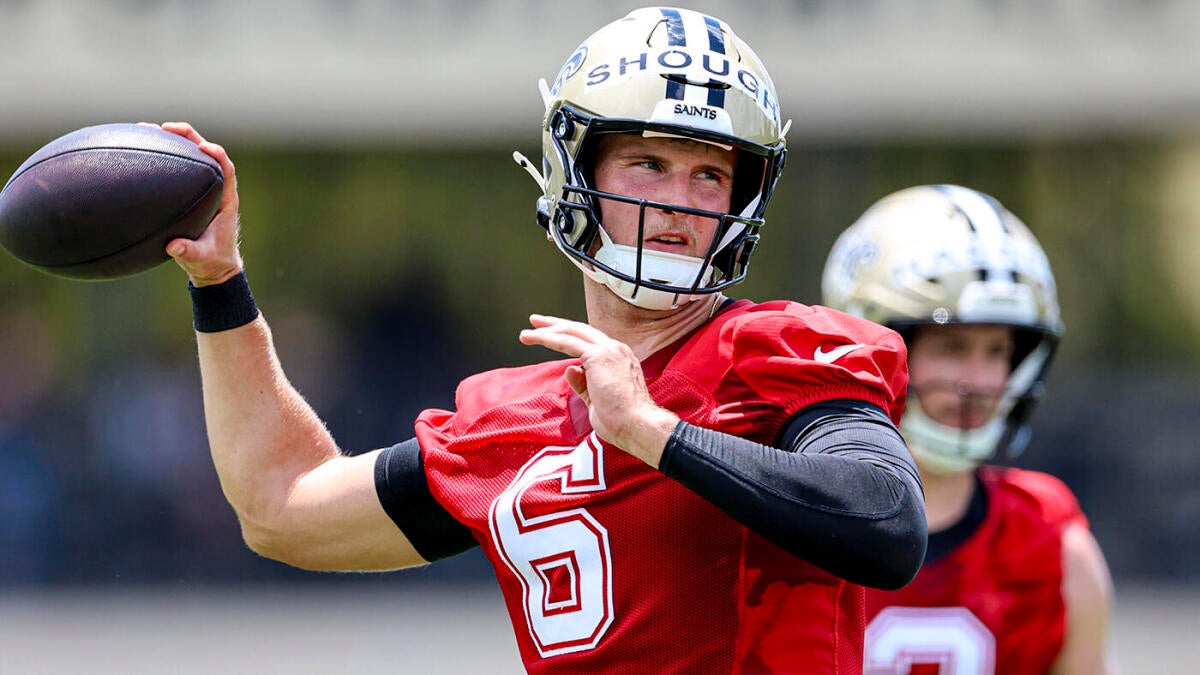The Second-Round Standoff: A Deep Dive into the 2025 NFL Rookie Contract Situation
In the high-stakes world of the NFL, the 2025 Draft has brought an unusual twist: a significant delay in the signing of second-round rookies. While first-round picks have swiftly secured their contracts, a notable number of second-round selections remain unsigned, causing a ripple effect through team preparations. This delay isn’t just about negotiation timelines; it signifies a fundamental shift in the dynamics between teams and agents, driven by a desire for increased financial security for these players.
The Evolution of Rookie Contracts
A Historical Perspective
Historically, NFL rookie contracts were a battleground, often leading to prolonged negotiations and holdouts. The 2011 Collective Bargaining Agreement (CBA) introduced a rookie wage scale to curb escalating costs and limit disputes. This scale established predetermined salary slots based on draft position, bringing a degree of predictability. The implementation of this wage scale in 2012 led to faster signings, as the parameters were clearly defined. All drafted rookies typically receive four-year deals, with a fifth-year option for first-round selections.
The core components of these contracts include a signing bonus, base salary, and various potential bonuses (roster, reporting, workout, and performance-based incentives). While first-round contracts are now almost universally fully guaranteed, guaranteeing contracts for later-round picks has been less common. This is where the current impasse lies.
The Current Impasse
The Bottleneck: 30 Second-Rounders in Limbo
As of mid-June, approximately 40 rookies remained unsigned, with a striking 30 of those being second-round picks. This concentration is not accidental. The situation was catalyzed by two second-rounders securing fully guaranteed contracts, setting a new precedent. These deals have become the benchmark for agents representing subsequent second-round selections, creating a significant challenge for teams accustomed to offering more limited guarantees.
The total value of second-round contracts ranges from approximately $6 million to $9.6 million, with signing bonuses varying from $1.4 million to $3.9 million. However, the *structure* of these contracts – specifically the degree of guaranteed money – is the sticking point.
The Demand for Fully Guaranteed Deals
Agents vs. Teams
The core issue fueling the delay is the push for fully guaranteed contracts from agents representing second-round picks. Traditionally, these contracts have included partial guarantees, meaning the team isn’t obligated to pay the full amount if the player is cut or doesn’t meet certain performance benchmarks. The recent signings of two second-rounders with fully guaranteed deals have fundamentally altered the negotiation landscape.
Agents are leveraging these precedents, arguing that the risk associated with a relatively short four-year contract warrants greater financial security for their clients. They are demonstrating to teams that the cost of offering full guarantees isn’t prohibitive, particularly given the established wage scale. This strategy is also influenced by a reluctance among agents to be the first to settle for less favorable terms, preferring to collectively push for improved conditions.
Team Pushback and Negotiation Tactics
The Financial and Strategic Considerations
Teams, understandably, are hesitant to deviate significantly from established practices. Fully guaranteeing contracts for second-round picks represents a substantial financial commitment, especially considering the inherent uncertainty surrounding player development. Negotiations are focusing on the payment schedule of signing bonuses and the inclusion of offset language in salary guarantees. Offset language allows teams to reduce their financial obligation if a player is released and subsequently signs with another team.
Some teams may be exploring alternative strategies, such as offering larger signing bonuses in lieu of full guarantees, or structuring the contract with escalating guarantees based on performance milestones. There’s also a possibility, though less likely, that some teams might consider trading players if they are unwilling to meet the demands for full guarantees.
The Impact on Training Camp and Beyond
The Developmental Concerns
The prolonged delay in signings has implications beyond immediate contract terms. Unsigned rookies are unable to participate in organized team activities (OTAs) and minicamps, hindering their integration into the team’s system. This is particularly concerning for second-round picks, who are often expected to contribute significantly in their rookie seasons.
The situation could potentially extend into training camp, further delaying their development and potentially impacting team performance. While unsigned rookies are typically required to sign a Rookie Participation Agreement to ensure they remain eligible to play once a deal is reached, the lack of on-field practice is a clear disadvantage.
A Changing NFL Landscape
The Shift in Power Dynamics
The current standoff signals a potential shift in NFL contract norms. The willingness of agents to collectively hold firm on the issue of fully guaranteed contracts demonstrates a growing assertiveness in advocating for their clients’ financial interests. This trend could extend to future drafts, potentially leading to increased guarantees for players selected in subsequent rounds.
The Texans and Browns have been specifically mentioned as teams involved in these negotiations, potentially indicating they are setting the tone for how other teams will approach the issue. The situation highlights the ongoing tension between teams seeking cost control and agents striving to maximize value for their players.
The New Normal: Guaranteed Contracts and the Future of Rookie Deals
A Watershed Moment
The 2025 NFL Draft’s second-round contract impasse isn’t merely a temporary hurdle; it’s a watershed moment. The precedent set by the initial fully guaranteed deals has irrevocably altered the negotiation landscape. Teams are now facing a new reality where agents are empowered to demand greater financial security for their clients, and the traditional approach of offering limited guarantees is being challenged.
This shift is likely to continue, potentially leading to a broader trend of fully guaranteed contracts for second-round picks and beyond. The NFL’s rookie wage scale, while intended to create stability, is now being tested by the evolving dynamics between teams and agents. The outcome of these negotiations will not only impact the current class of rookies but will also shape the future of rookie contracts for years to come, ushering in an era where financial security for young players is prioritized like never before.

